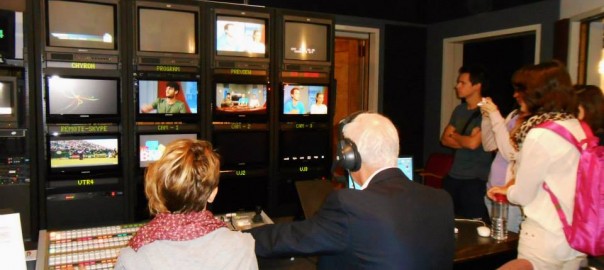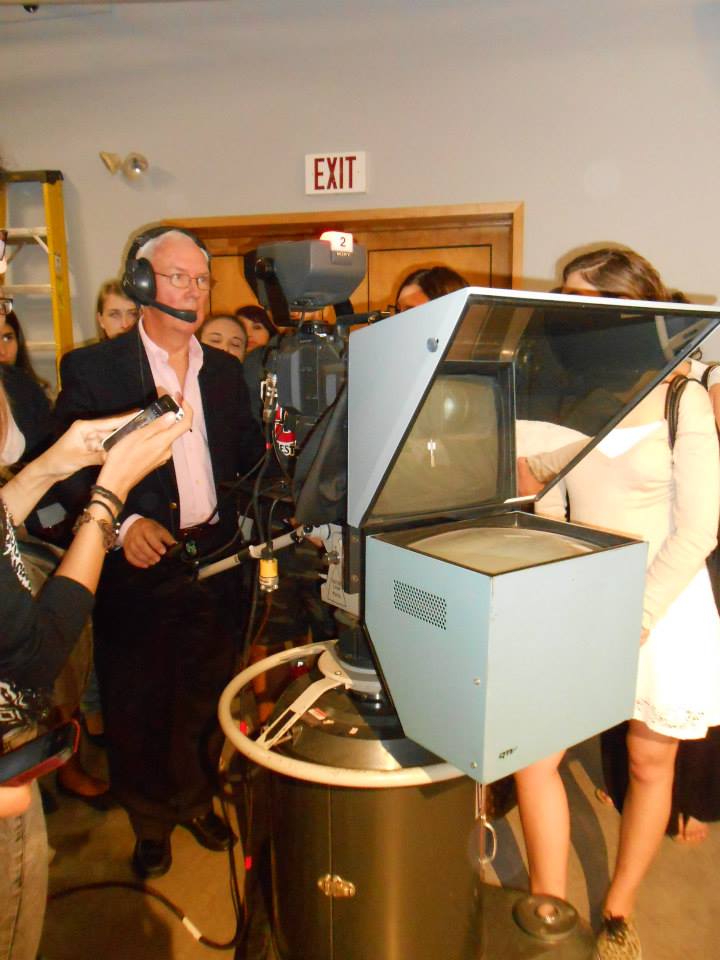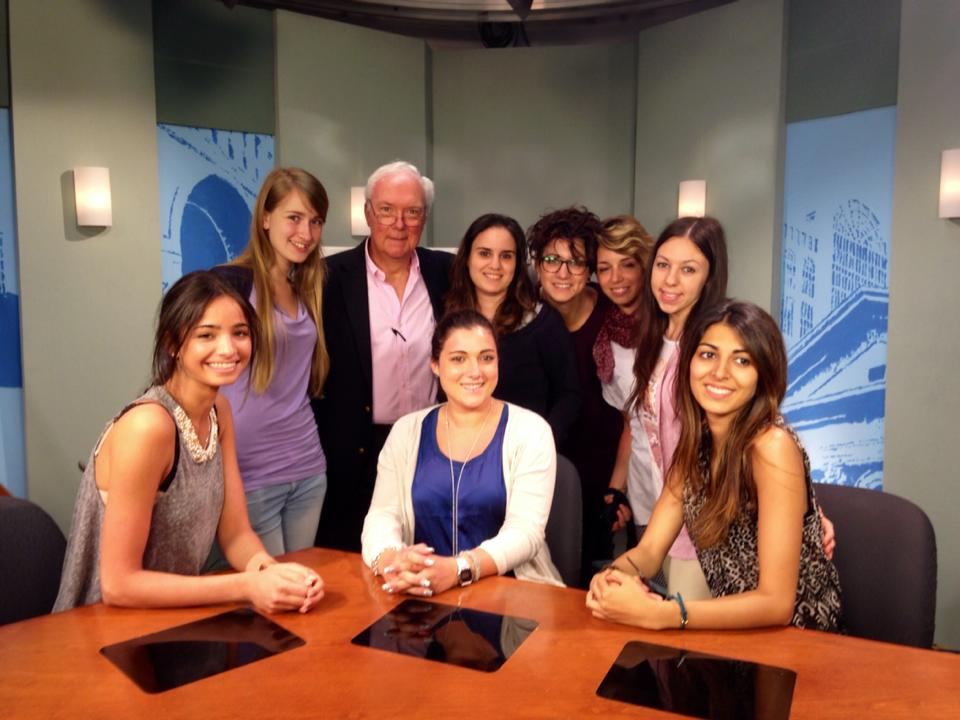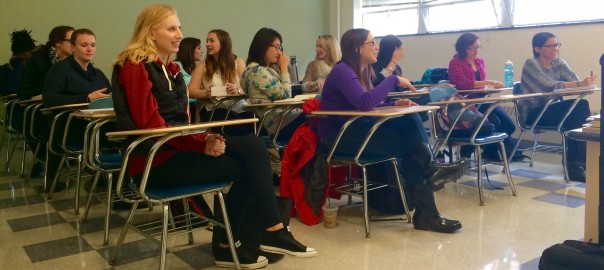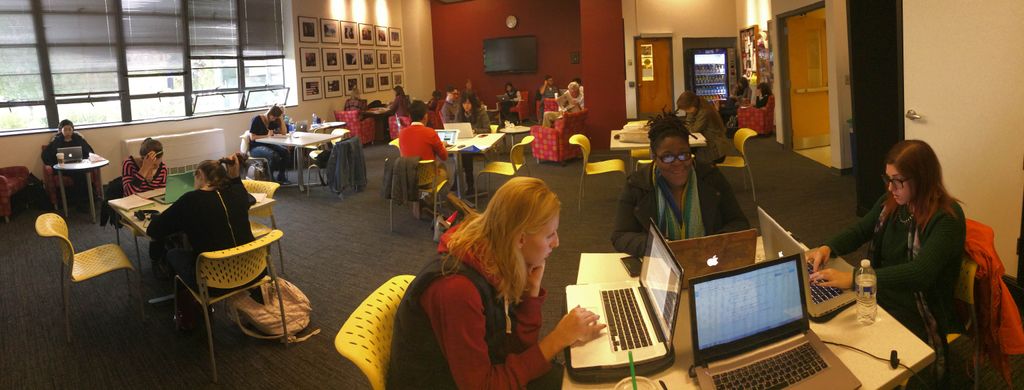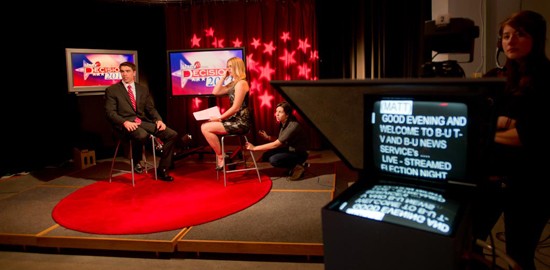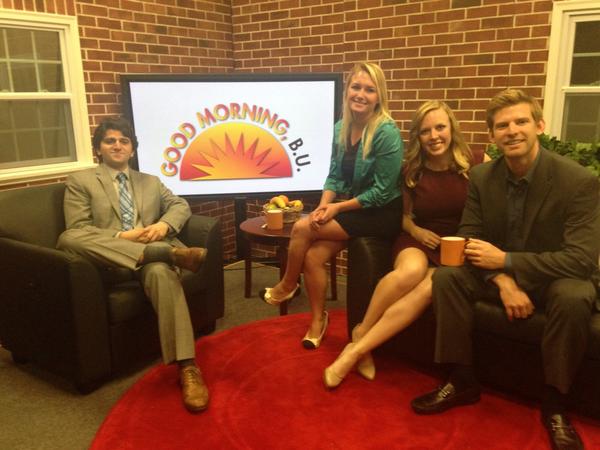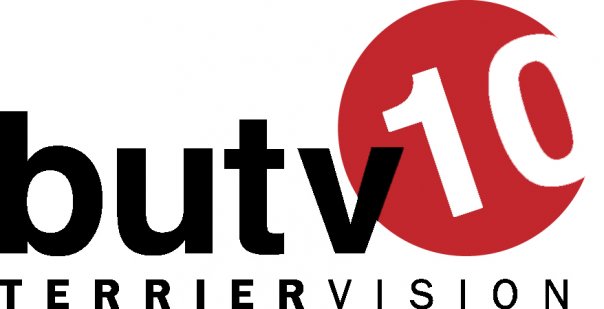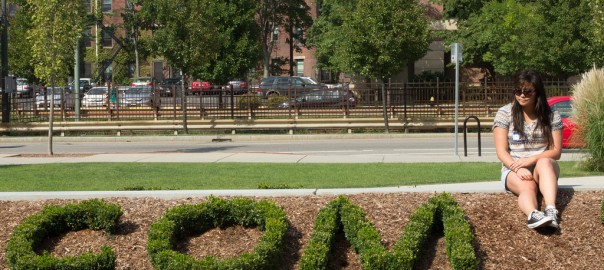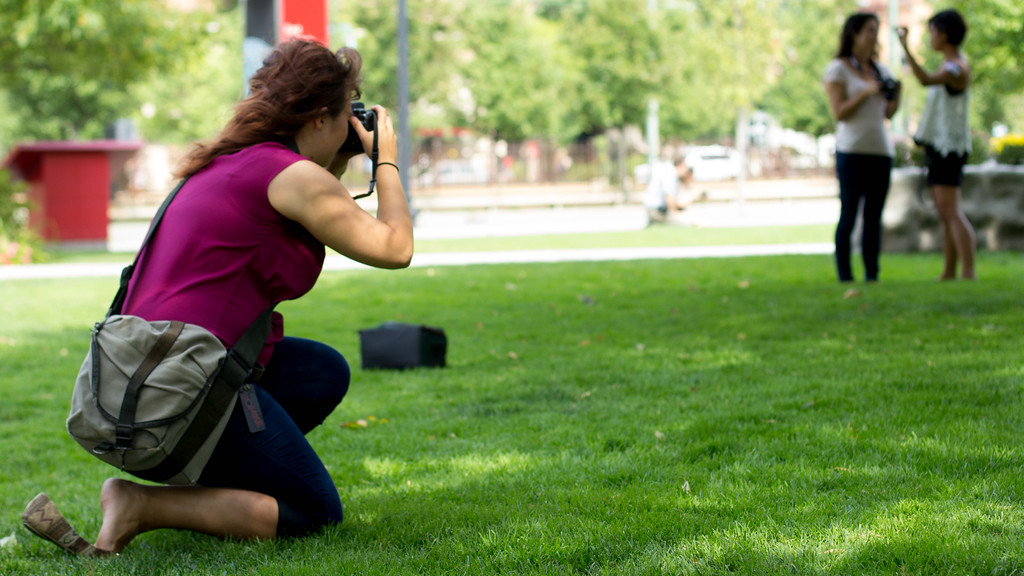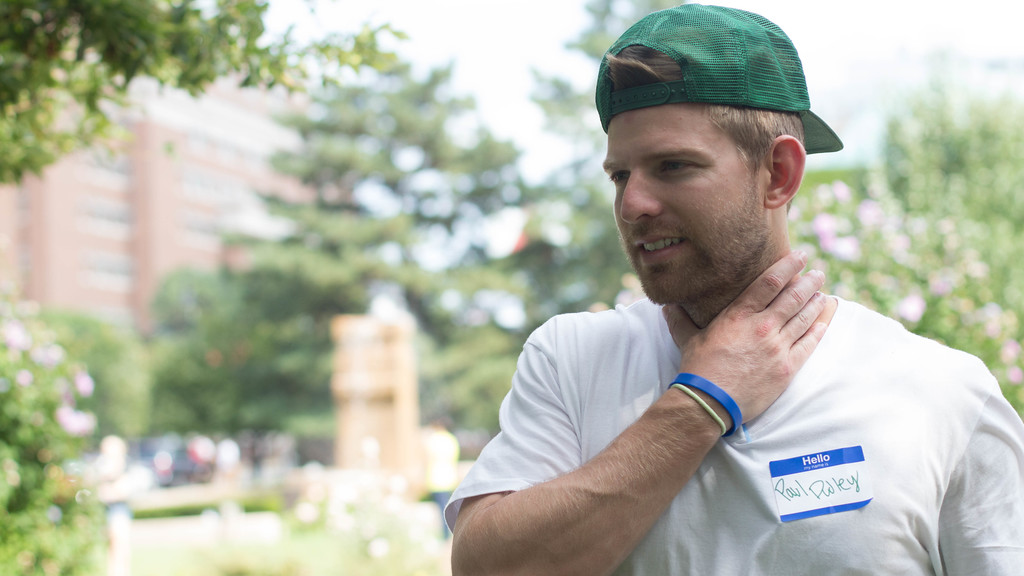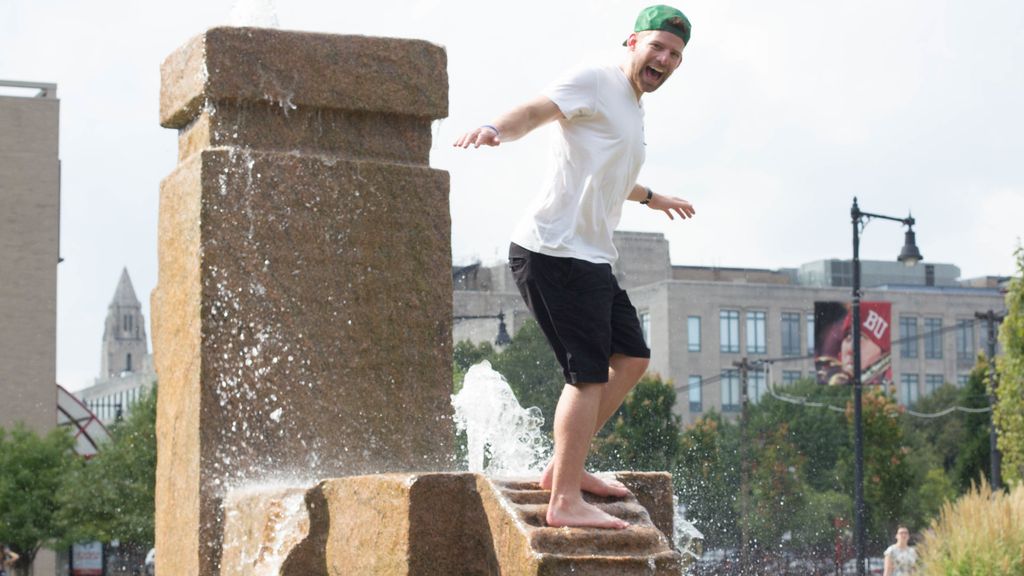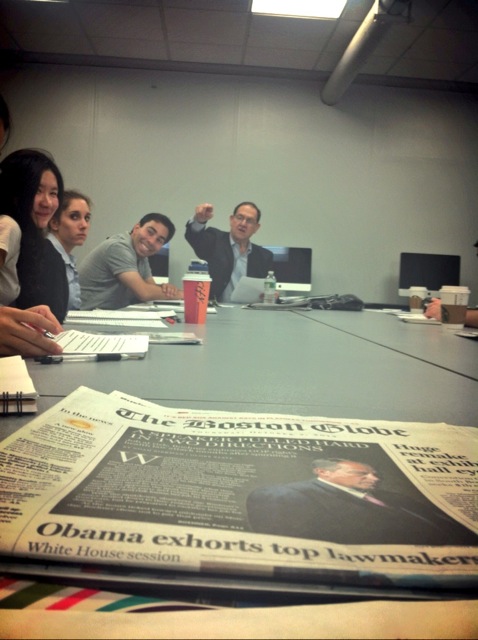By Nikita Sampath
MS Broadcast Journalism ’16
BU College of Communication
Broadcast Writing/Reporting (Course: JO 707) is a course taught at BU’s College of Communication (COM) that all grad students interested in Broadcast Journalism should take in their first semester. As the title suggests, the course is designed to teach us how to write a story for broadcast news and report on camera. The course, which is taught by Professor R.D. Sahl, a veteran journalist with 40 years of experience in the field, teaches the main requirements of good story writing. These include: good writing, videography, editing, sound, natural sound and tracking. Timing is of essence too.
At the start of the semester, JO 707 introduced us to script writing for television broadcast– attention-grabbing, short and simple sentences, with editing and production commands. Each week, we begin class with a discussion of breaking news for the day. We then spend a considerable amount of time watching and analyzing professional news packages. For an assignment, Prof. Sahl asked us to watch evening news telecast and break it down– number of stories, kinds of packages, whether the reporter was on screen etc. This helped us learn the different ways in which news stories can be broadcast.
As for equipment, we’ve learned to use the JVC 100/150u to shoot our news packages and how to access the recording booth to do our tracking and voice overs. All necessary equipment can be rented (free of cost) from COM’s Field Production Services. Additionally, we use Final Cut Pro X to edit videos. We are very lucky in the fact that this software is available to all students in all editing and Mac computer labs at COM. It’s great that students don’t have to worry about buying equipment or software of their own.
It’s only been six weeks and the eight of us grad students in the class are capable of producing entire packages by ourselves, one or two of which could be aired with some additional editing.
Check out this news package on the peer-sharing ride Lyft, done by Broadcast Journalism grad student Iris Moore, for last year’s JO 707 class.
One student from JO 707 said, “Prof. Sahl is a meticulous evaluator. Having watched each of our packages several times he was able to give us valuable, detailed feedback so we don’t repeat our amateur mistakes in future packages.”
From JO 707, Prof Sahl says he hopes every student will take-away the following:
- The best TV stories have strong writing, powerful video and sound, interesting characters and a compelling story line
- Accuracy is the coin of the realm. Get it right.
- Deadlines matter. Meet them.
- Care about the stories you report. It will show in the final product.
To learn more about the BU’s College of Communication Journalism graduate program, go here. A list of offered Journalism courses can also be found here.
Have questions? Ask us in the comment section below. Also, be sure to visit our site to learn more about the various graduate programs we offer at COM.
